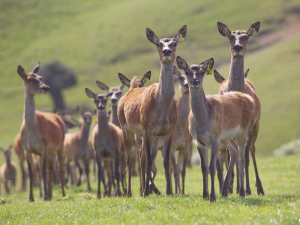A farmer who failed to register 295 deer into the National Animal Identification and Tracing (NAIT) scheme has been fined $13,750.
Under the system all cattle or deer must be fitted with a NAIT tag and registered in the NAIT system by the time the animal is 180 days old, or before the animal is moved off farm.
John Wheeler (60), Lake Tekapo, was sentenced in the Timaru District Court on four charges under the NAIT Act.
“Mr Wheeler’s animals were not registered into the NAIT system as required when they were moved off farm. We take this seriously because the scheme provides a critical tool in the fight against biosecurity incursions,” says Ministry for Primary Industries (MPI) Regional Manager of Animal Welfare and NAIT Compliance, Murray Pridham.
“The scheme helps us track and trace animals so we can respond quickly and accurately when we need to. Put simply, when people in charge of animals disregard their NAIT obligations they put the whole agricultural sector at risk.”
NAIT records showed the 295 deer had been tagged but remained unregistered between May 2021 and June 2022.
In November 2021, Wheeler was educated by an MPI NAIT officer on his obligations and how to meet them, but records show no animals were registered after that meeting even though Wheeler confirmed he knew what to do for his NAIT animals.
In 2019, penalties in the NAIT Act increased tenfold to $100,000 for an individual and up to $200,000 for a body corporate.
Pridham says while receiving one of these penalties could hurt the bottom line for people in charge of animals, the inability to trace animals can have far reaching and serious consequences for everyone.
"The NAIT tag and registration system is only as effective as the information entered in. If you are unsure about what you need to do, reach out. There is plenty of information, advice and support available," says Pridham.



















